Future for Rohingya: Refugees refuse to lose hope
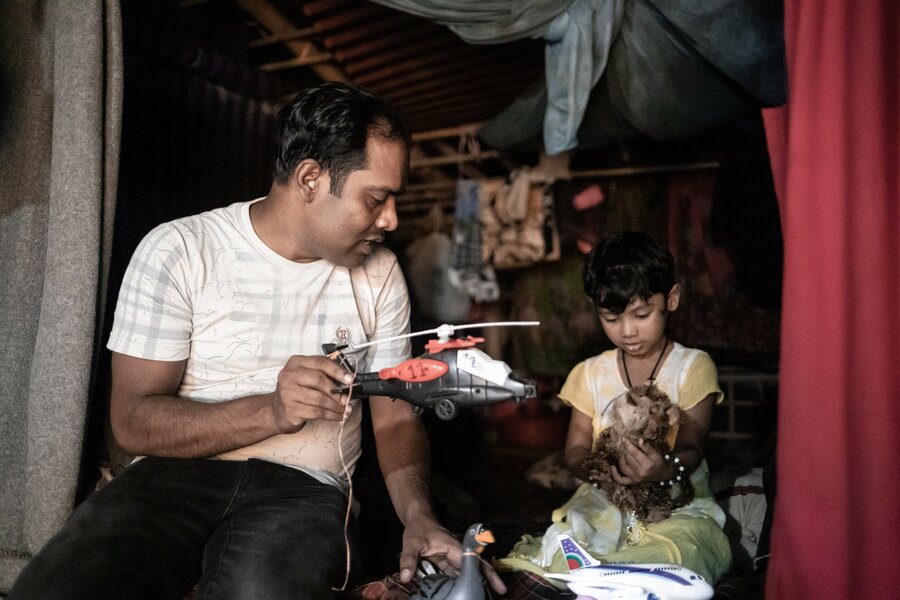
Sawiid was working for a humanitarian agency when his family called him three years ago — his house and village in Myanmar were burned down. When he got back to his home, his brothers and their families had already left for Bangladesh.
"Originally, I wasn't brave enough to move because I have four children. Two are very young. I knew the distance, while most people didn't. They had to escape from a mountain to another mountain, one river to another river. Sometimes they had to carry their babies, their wives, sometimes their mother, sometimes their father.
"But the situation in Myanmar didn't change. Everything shut down. There was no work. I was really upset because I thought ‘if I have no house, there's no work available here, it's meaningless to stay'," Sawiid says.
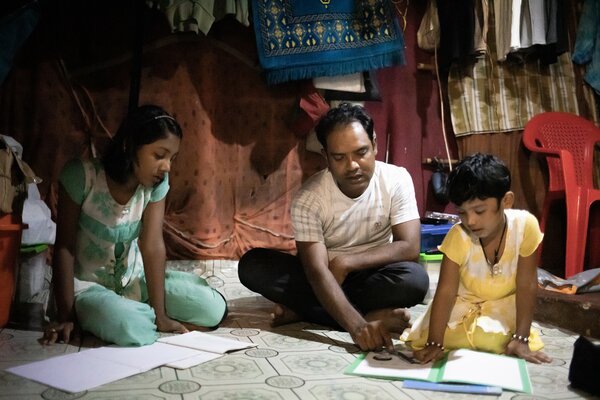
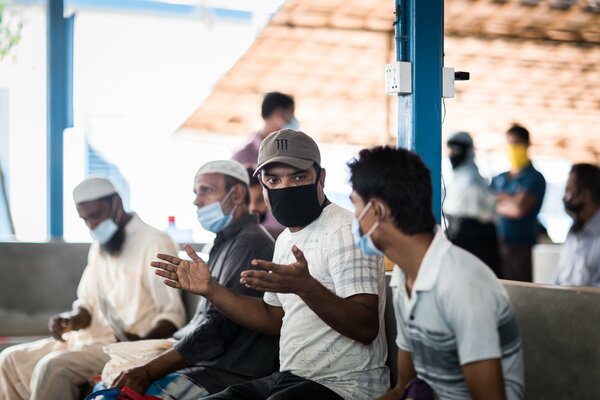
Sawiid and his family have been living in the Rohingya refugee camps in Cox's Bazar, Bangladesh since they arrived in September 2017. Today, Sawiid volunteers with WFP to spread awareness about assistance programmes and COVID-19 to other refugees.
"I'm really happy to work with the World Food Programme (WFP) here. We are preventing people from taking risks. It's very important because — I can say it in two words — it's life-saving.
"We hope one day we can go home. Our eldest is almost 12. If I were in Myanmar, she might be in class 9 or 10 now. Now she's totally missed out on her education. I will always think about how we can build the education for our kids — not just my kids, all the hundreds of thousands of Rohingya children who've lost their education."
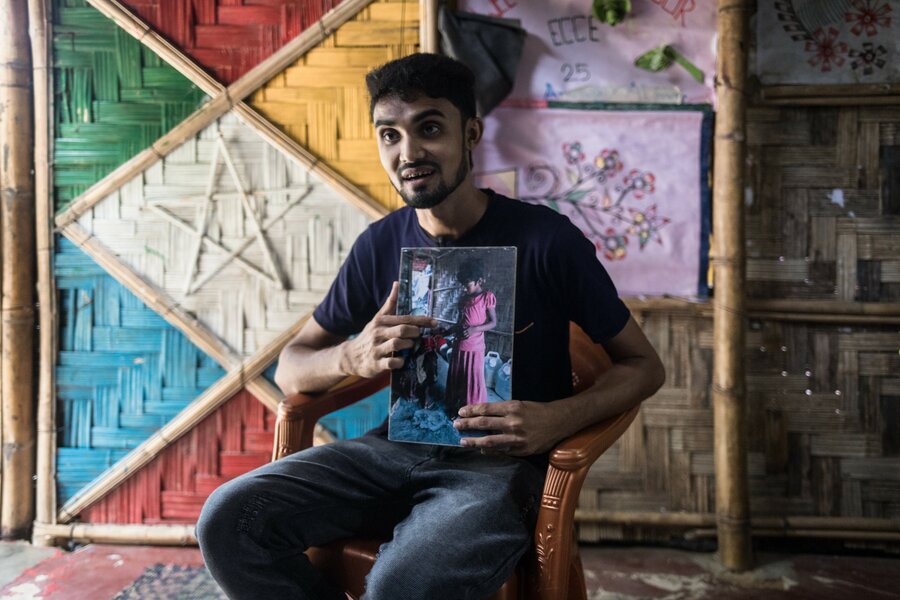
"I heard about WFP back in Myanmar. We saw the rice that was distributed from WFP, but never saw any faces," says Jeyabol.
He arrived in Bangladesh with his family three years ago. Today, he, his wife and their daughter live in the world's largest refugee camp. He is a participant in the WFP Storytellers project which empowers young people affected by crises around the world to tell their stories in their own voices.
"Ever since we came here, WFP helped us a lot. People from WFP came to our shelter and asked us to submit 15–20 pictures. I didn't know how to take a photograph. I learned how to photograph, how to hold the camera, and how to take videos. Now I know how to write a caption and how to send it to Facebook or Twitter or anywhere else.
"We have a lady here who doesn't have any relatives except for a young granddaughter. She used to carry water from the well here and used to give it to her grandmother. One morning I woke up at 8 am and saw her carrying water for her grandmother. I clicked around five photos. Then I submitted those to the Storytellers programme."
Recently, Jeyabol began volunteering with WFP to spread awareness about the risks of COVID-19, which persists in the camps, and help people understand how they can protect themselves and others.
"It's very hard to live in the camps where we are now. I thought if I, as a communications volunteer, cannot fully protect myself from COVID-19, how will all Rohingya people live safely here?"
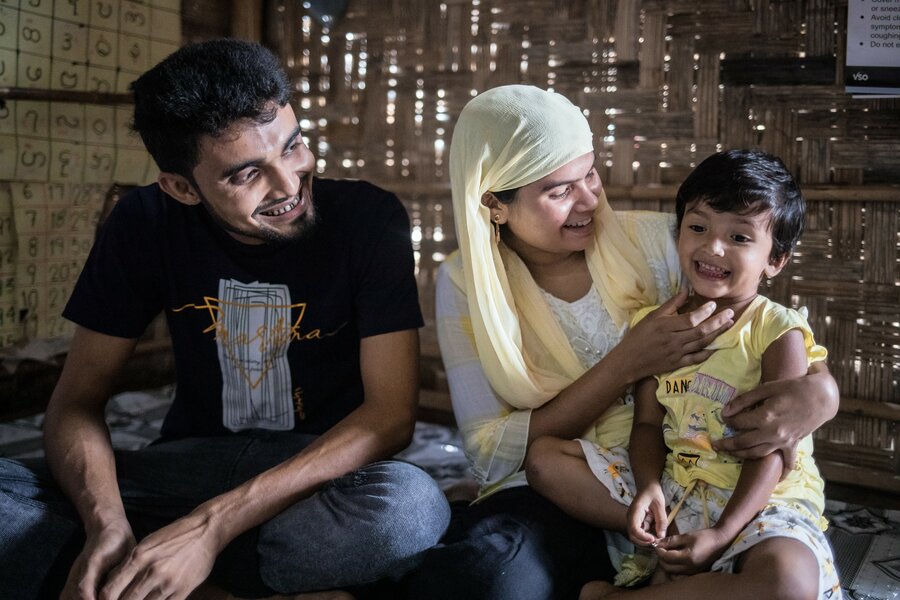
"When I came here I thought I would go back after four or five months. Whatever we had in Myanmar was destroyed. After joining WFP, my hopes have changed. When I did the storytelling, I realized this isn't only about me, this is about a lot of other people. If I can share their stories with everyone, that would be good for them. So as a storyteller, my hope now is to help as many people as I can."
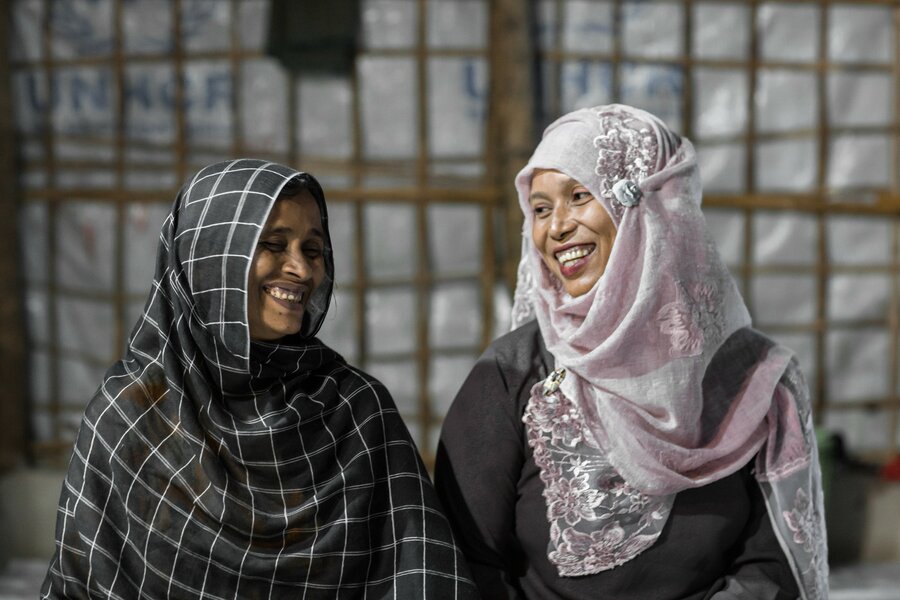
Minara and Rokeya are from two different generations of Rohingya women but come from the same village in Myanmar. Three years after fleeing their home, their shelters are in the same part of the refugee camp where they now live. Both have become leaders in their community.
"Life was very beautiful in Burma," says Rokeya, 70. "We lived happily. But I lost my mother in my childhood, so I couldn't study. I had to work for a living and took care of my children and my family. I want my sons and daughters to be educated. I want to see equality."
"I studied till grade 10 in Myanmar," says Minara, 29. "Here, I teach girls. In the beginning, people in the community didn't take it easily.
"In Myanmar, there were no female Rohingya leaders. Now, after coming to Bangladesh and being a refugee, I am also a leader and I want to show the world that all women have equal rights. I want to show them a world of peace."
"Education is very important for the Rohingya women," says Rokeya. Knowledge is a great treasure. It's a big thing. I go to the meetings on Coronavirus. There are women in my camp block, I give them advice like, ‘don't quarrel with each other, stay in peace, maintain cleanliness, don't do anything that can make you sick.'
"[But] when our kids ask about how their own country looks like, I feel bad. They don't know now. The kids don't know."
"Our sons and daughters don't know Burma," says Minara. "By showing photos of our houses, I tell them, ‘This is Burma. This is our place.' At the time I was coming from Burma, my daughter was 6. She's turned 9 now. Till this age, she hasn't been able to study at all.
"I want my daughter to be a lawyer because I couldn't do anything for her rights. I can't study at this age. I want my daughter to study law so that she can do what she wants."
WFP's support for Rohingya refugees is made possible thanks to the Government of Bangladesh and our generous donors, including the United States of America, the United Kingdom, the European Union, France, Germany, The Netherlands, Australia, Japan, and Canada.
